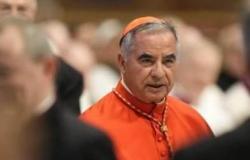“These elections are a milestone in the political evolution of the country. It took India 75 years to overtake its main colonial ruler, the United Kingdom, as the world’s fifth largest economy. This is the first national election to be held in India since it became the world’s most populous nation and comes at a time when India has just begun to take its place as a global power, a distinction it had lost before the rampant colonization that began in the 1700s,” is the comment to Adnkronos by Vas Shenoy, Representative of the Indian Chamber of Commerce in Italy.
What happens if the exit polls, which speak of Prime Minister Modi’s success, are confirmed by the vote count? The opposition, including the Congress party, accuse him of having sacrificed India’s secularism and its “traditional protection” of minorities. And they warn that a resounding victory for Modi will lead to a change in the Constitution, the erosion of Indian democracy and a “Hindu Rashtra”, in which Muslims will not have equal rights. “Maybe the opposition and the West are looking at this picture the wrong way,” explains Shenoy. “It is not Modi’s India. He is the Modi of India. The Prime Minister, in his third term, will be the expression of a young, united nation just coming to grips with its unity, identity, history and religion. It’s not perfect, it’s constantly evolving. By blaming Modi for India’s evolving Hindu identity, the opposition, Western scholars and the media are once again taking away the dignity of every Indian citizen. The Indian Hindu voter is portrayed as stupid, gullible, impressionable, compliant, and finally, if that wasn’t enough, he can be easily fooled by faulty voting machines. He needs to be protected by the wisest rulers. This was essentially the perspective of the British when they ruled India, and this is what Congress wants us to continue to believe. But the Indian voter today is completely different.”
How has Indian politics changed in recent years? “I have lived abroad in recent years, but I was born in 1980 on the outskirts of Bombay, a few days after the sensational victory of Rahul Gandhi’s grandmother, Indira. I grew up in a predominantly Sikh colony when she was killed in 1984. I still remember her despondency at her death and the chaos that followed, the clashes and destruction of the Sikh community following her assassination. I remember his father Jawaharlal Nehru’s famous speech, in which he said: “When a great tree falls, the earth trembles”, justifying the massacre. I experienced every step of the Congress as it sought to implement its “divide and conquer” agenda, the imperial imprint left by the British, while the Hindus sought to come to terms with their identity and their role in the country and in democracy, in which they were the majority. I saw Bombay become Mumbai, Balasaheb Thackeray and the rise of him, and the slow evolution of a people from a Union of States to a country, a nation and an identity”.
Is India no longer “A Union of States”? “Congress and Rahul Gandhi are calling the country that way and they are partially right. At the time of independence, India had over 600 kingdoms and presidencies that needed to be united. It was Indira Gandhi who abolished the privy purse and got rid of monarchs. It was Indira Gandhi who led Harivansh Rai Bachchan to promote Hindi as the Rashtra Bhasha (national language), when there were many other older languages that could have taken that place. All this had the desired effect. India is now a nation. The people have a national identity of which they are proud. He also has a religious and cultural identity that he has begun to accept. It took 75 years after independence, after two centuries of humiliation, for Bharat (India’s name in Sanskrit) to build its first major temple. It took the same amount of time to inaugurate the first temple in the Persian Gulf since the advent of Islam. The self-respect that the country has achieved is reflected in the respect that other rulers and countries give it. Hindutva, the Hindu nationalist movement, evolved into Sanatana Dharma, a “balanced” evolution that brought Prime Minister Modi to power.”
Why do you think Congress is no longer able to convince voters? “The modern Congress uses the Abhaya hasta (the blessing hand) as its symbol which is the symbol of fearlessness, where the deity (in this case the Congress) protects the devotee (the citizen). He couldn’t have adopted a more Hindu symbol. Our deities constantly protect us and the hand is the hand of benevolence, blessing and protection. Congress’s repeated defeats not only mean that it is unable to be benevolent and protective of voters. The Indian voter has reached such maturity that he does not believe that his rulers are on a pedestal or are divine. The Congress has failed to make peace with this evolution of India, in which the nation-state has only one identity, that of being Indian. It no longer puts its rulers on a pedestal and is proud of its identity as a nation. Hindus, after 75 years, are comfortable with their identity and are confident that no matter what government they elect, it will protect every citizen of India regardless of their religion, caste, gender or political orientation. Abhaya hasta is now in the hands of every citizen of India, not the Congress party,” concludes Shenoy.





